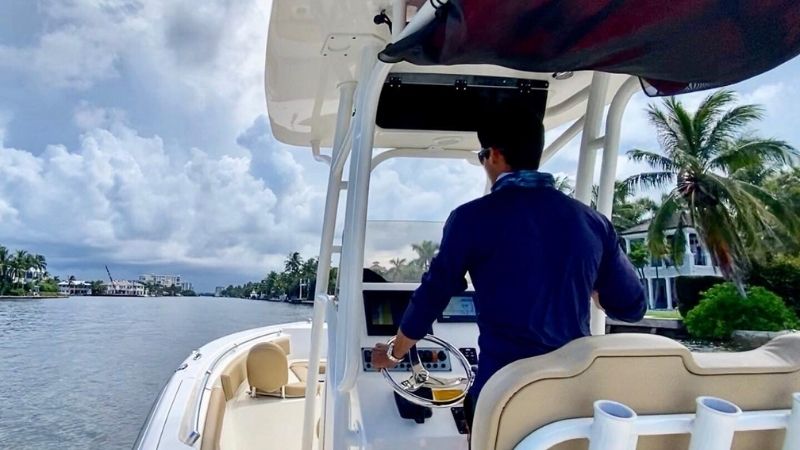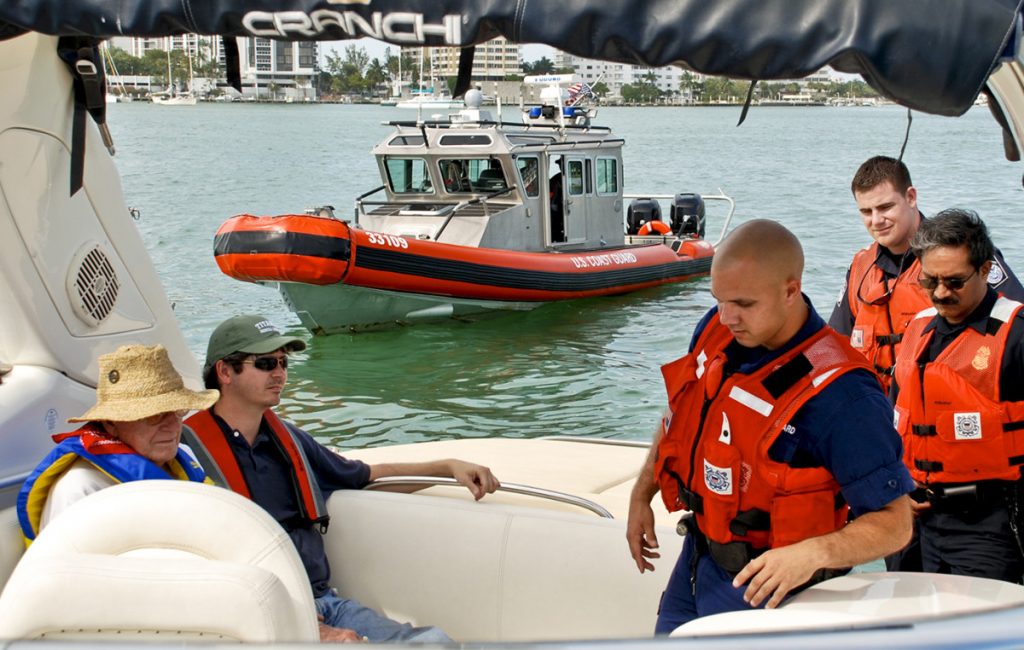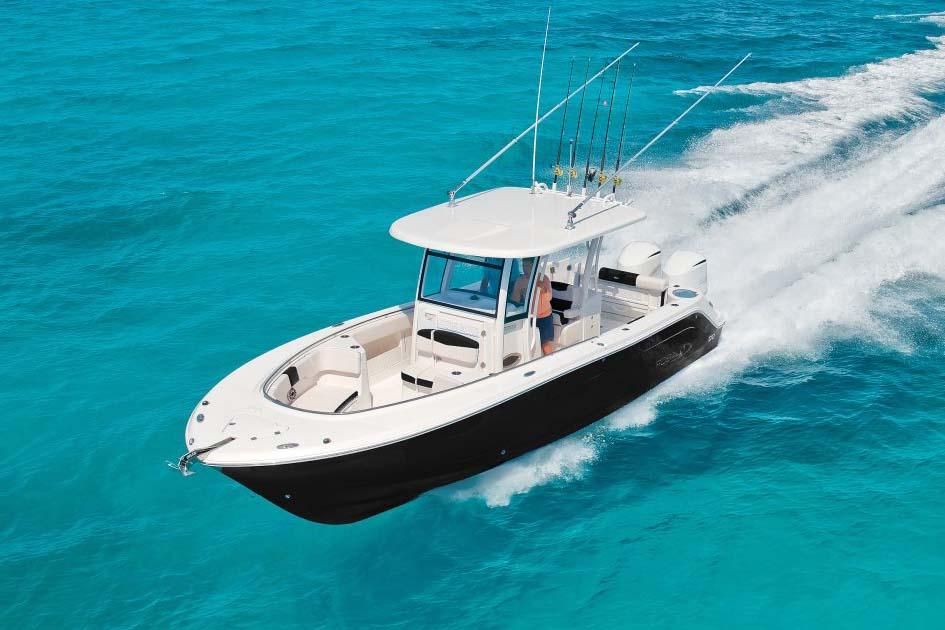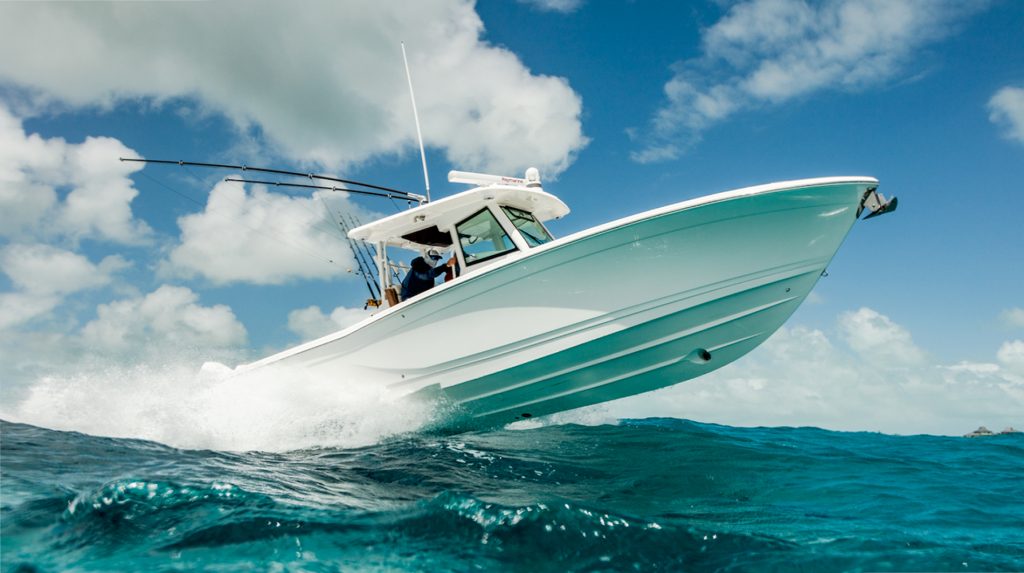According to Florida Law: Essential Items Required Aboard a Vessel
Navigating the waters of Florida requires boat operators to adhere to specific laws and regulations designed to promote safety on the water. One critical aspect of these regulations involves the rights and responsibilities of boat owners and operators, including the required safety equipment that must be aboard a vessel at all times.
Florida law emphasizes the importance of having this equipment onboard not only for the safety of the vessel's occupants, but also for the overall well-being of the marine environment.

Florida has stringent requirements for those operating vessels; for instance, individuals born on or after January 1, 1988, need to carry certain documentation proving they've completed a boating safety education course before they can legally operate a boat with a motor of 10 horsepower or greater.
The state also places a strong focus on maintaining a safe boating environment, with specific equipment requirements depending on the type of vessel as well as penalties for non-compliance. Understanding Florida's boating regulations is essential for anyone who plans to spend time on the water in the Sunshine State.

Key Takeaways
- Florida law mandates specific safety equipment on board vessels at all times.
- Operator requirements and restrictions depend on factors such as age and education.
- The state imposes penalties for not adhering to these safety regulations.

General Requirements for Vessels
According to Florida law, every vessel is required to have specific equipment onboard to ensure the safety of passengers and comply with regulations. Though requirements differ depending on the vessel size, some general provisions apply to all boats.
First of all, each person aboard the vessel must have a USCG-approved Type I, II, or III Personal Flotation Device (PFD) that fits appropriately source. This mandatory safety measure helps prevent accidents and ensures a safe boating experience.
Moreover, Florida law requires.Anchor and line or an anchor and oar be present on a boat as well. In case of emergencies or to control the boat's position, appropriate length of rope or chain and suitable anchor for the vessel's size are essential.
As for propulsion devices, every boat must have at least one functioning paddle or means of alternative propulsion. This can be useful in situations where the motor fails or runs out of fuel, allowing the boat to reach a safe location.

Vessels with built-in fuel tanks, specifically those with non-fire resistant tanks, are required to possess an approved backfire flame arrestor and properly installed ventilation systems source. This reduces the risk of fire and ensures hazardous fumes from flammable gasoline don't accumulate, enhancing the safety and health of everyone on board.
To conclude, it is necessary to comply with Florida's laws and regulations when aboard a vessel. The presence of appropriate safety equipment, such as PFDs, anchors, oars, and proper fuel storage, allows boaters to enjoy their time on the water with minimal risks and maximized safety.

Mandatory Equipment Onboard
Florida Law mandates several pieces of equipment to be onboard to ensure the safety of passengers and other boaters. One essential item is an adequate fire extinguisher onsite. It's crucial to have at least one functional fire extinguisher accessible in the event of a fire onboard.
Another vital component is navigation lights. Vessels must have properly functioning navigation lights to navigate safely during the night or low-visibility conditions. High-quality, reliable navigation lights ensure other boats can see your vessel and avoid accidents.
As per Florida regulations, U.S. Coast Guard-approved personal flotation devices (PFDs) are a must-have on any Florida-bound vessel. Each person onboard must have access to an appropriately sized PFD. For boats 16 feet or longer, there's also a requirement for one throwable device, such as a life ring or float cushion source. Note that inflatable PFDs are also permitted as long as they meet the U.S. Coast Guard's approval.

A visual distress signal is useful and often required during emergencies. Different types of visual distress signals, such as flares or daytime signal flags, can be used depending on the situation to alert others for help.
In addition to visual distress signals, boats must also carry an efficient sound-producing device according to Florida law. Sound signals can play a vital role in avoiding collisions, notifying other boaters or the coast guard in case of an emergency, or navigating through fog.
By ensuring your vessel is equipped with all the mandatory equipment specified by Florida law, you can enhance the safety of your passengers and other boaters in the area. It's crucial to familiarize yourself with the relevant regulations and maintain your safety equipment in excellent working condition for a safe and enjoyable boating experience.

Safety and Education
According to Florida law, certain safety equipment and education are necessary for boating. All recreational vessels are required to have size-specific safety equipment on board, such as personal flotation devices, fire extinguishers, and whistle or horn FWC - Florida Fish and Wildlife Conservation Commission.
To ensure safe and responsible boating practices, Florida has implemented a boating safety education course that individuals must complete before they are allowed to operate a vessel. This course is approved by the National Association of State Boating Law Administrators (NASBLA) and meets the requirements of a statewide program of boating safety instruction.
The course covers essential safety information and guidelines to enable boaters to navigate the waters safely. Upon completing the NASBLA/State of Florida-approved boater education course, individuals receive a boating safety education certificate. Those born on or after January 1, 1988, are required by law to have a Florida Boating Safety Identification Card, which proves successful completion of the course, before they can legally operate a vessel powered by a motor of 10 horsepower or greater.

Mandatory violator education is another aspect of Florida's boating safety program. Individuals who have been found guilty of specific boating safety violations are required to complete an approved safe boating course. The goal of such courses is to increase awareness of safe practices, reduce the number of violations, and ultimately, minimize accidents and fatalities on the water.
In conclusion, the Florida boating safety education program seeks to ensure that boaters have the necessary knowledge and equipment to safely navigate the waterways. By offering approved courses and enforcing strict regulations, Florida maintains a safe and enjoyable boating environment for everyone.

Operator Requirements and Restrictions
According to Florida law, there are specific requirements and restrictions for operating a vessel within the state. The Florida Fish and Wildlife Conservation Commission (FWC) and the U.S. Coast Guard enforce these laws to ensure the safety of all boaters.
One of the main concerns when operating a vessel is the consumption of drugs and alcohol. Boating Under the Influence (BUI) is a severe offense in Florida. It is unlawful for any person to operate a vessel while impaired by alcohol or drugs. The legal limit for breath-alcohol content is 0.08% or higher in Florida, and this applies to boat operators as well. Law enforcement officers have the authority to carry out sobriety tests on operators if they suspect them of being under the influence of drugs or alcohol.

In addition to BUI regulations, there are specific operator age restrictions in Florida. A person born on or after January 1, 1988, may not operate a vessel powered by a motor of 10 horsepower or greater unless they possess a boating safety education card according to Florida Statutes. Furthermore, anyone younger than 14 years of age is not allowed to operate a personal watercraft (PWC) in Florida waters.
Nonresidents who operate vessels in Florida waters for more than 90 days need to obtain an International Certificate of Competency, while those staying for less than 90 days can operate a vessel if they meet their home state or country's boating education requirements.

Operators of rental boats must receive an orientation from a rental facility attendant before they are allowed to operate a vessel. This orientation typically consists of local waterway information, safety requirements, and the boat's operational instructions. The attendant is responsible for ensuring the renter is knowledgeable about the operation of the vessel and its safety equipment.
In conclusion, Florida law mandates various requirements and restrictions for vessel operators to ensure the safety and well-being of all boaters. It is essential to be knowledgeable about these regulations and restrictions before operating a vessel in Florida waters.

Law Enforcement and Penalties
In the state of Florida, the enforcement of boating laws is primarily carried out by the Florida Fish and Wildlife Conservation Commission. The commission ensures that all vessels comply with the necessary safety requirements according to Florida law.
The enforcement officers in Florida have the authority to inspect vessels for compliance with the law. They can issue non-criminal boating safety infractions for minor violations of boating laws. These infractions usually result in fines and are not considered criminal offenses. However, more serious violations, such as operating a vessel while under the influence of alcohol or drugs, can result in criminal boating violations. These offenses may be classified as first-degree misdemeanors and can lead to significant fines, probation, or even imprisonment.

It is essential for boat owners to provide proper documentation, such as a bill of sale, to prove ownership of their vessel. Failure to present proper documentation can result in fines, penalties, or even the impounding of the vessel. Additionally, boat operators must ensure that their vessel is equipped with all required safety equipment, including life jackets, fire extinguishers, and signaling devices. Failure to have the necessary equipment on board can also lead to non-criminal boating safety infractions or, in more severe cases, criminal boating violations.
In cases where a boating accident results in property damage, personal injury, or death, Florida law requires the involved parties to report the incident to the appropriate authorities. Failure to report an accident can result in severe penalties and legal consequences.
In summary, the enforcement of boating laws in Florida is a critical aspect of ensuring the safety and well-being of all those who enjoy the state's waterways. Boat owners and operators must be aware of their responsibilities under Florida law and follow all regulations to avoid penalties and ensure the enjoyment of all on the water.

Specific Laws for Different Vessels
In Florida, different types of vessels must comply with specific boating laws. This section will focus on requirements for personal watercraft (PWC), diving vessels, and the need for an engine cutoff switch.
Personal Watercraft (PWC): Operators of PWCs in Florida must adhere to certain state-specific regulations. Each person aboard the PWC must wear a USCG-approved Type I, II, or III personal flotation device (PFD) that fits appropriately source. Additionally, PWCs should be equipped with an engine cutoff switch, wherein the lanyard is attached to the operator to ensure the engine stops if the operator falls off.
Diving Vessels: Diving vessels have certain requirements to ensure the safety of their divers. A divers-down symbol (red flag with a white diagonal stripe) must be displayed prominently on the vessel when divers are in the water source. Boats must adhere to slow or no-wake speeds within 300 feet of a divers-down symbol in open water and within 100 feet of a divers-down symbol in rivers, inlets, or navigation channels.
Engine Cutoff Switch: Florida law mandates that engine cutoff switches be properly connected and working if the vessel is less than 26 feet in length and is equipped with an engine cutoff switch source. This safety feature is designed to stop the engine if the operator is ejected from the boat, helping to prevent injury from the spinning propeller and loss of control of the vessel.
As different vessels have unique safety requirements, it's important for boat owners and operators to familiarize themselves with Florida's boating laws. This ensures a safe and enjoyable experience on the water for everyone involved.

Special Provisions for Non-Residents
In Florida, boating regulations extend to non-residents who operate vessels within the state. Non-residents must possess a valid boater education certificate or a Canadian Pleasure Craft Operator Card to be allowed to navigate Florida waters. The Florida Boater Education Temporary Certificate serves as an alternative for non-residents who do not have the needed certification.
The temporary certificate examination can be taken online. Once a non-resident successfully passes the exam, the temporary certificate is valid for 12 months from the issuance date. During that time, the certificate holder needs to carry it on board the vessel, along with a photo identification. Keep in mind, this is required by law for all personal watercraft operators, regardless of their residency status.
Non-residents must also adhere to the same safety equipment requirements as Florida residents. Vessels in Florida waters are required to be equipped with appropriate safety devices such as life jackets, fire extinguishers, and sound-producing devices, like bells or whistles, of a certain size. The vessel's size, type, and the activities engaged in determine the details of these requirements.
In summary, non-residents operating boats in Florida must be familiar with and comply with state boating regulations. Holding a valid boater education certificate, such as a Canadian Pleasure Craft Operator Card, or the Florida Boater Education Temporary Certificate is essential. Proper safety equipment must be available on board, ensuring a safe and enjoyable experience for all.

Legislation
In Florida, boating laws are governed by Chapter 327 of the Florida Statutes. This legislation outlines the requirements and regulations for various aspects of boating, including safety equipment, vessel registration, and navigation rules.
One of the main safety concerns addressed by Florida boating law is the requirement for personal flotation devices (PFDs) on board vessels. According to FWC, for vessels 16 to 26 feet in length, every person on board under the age of 6 must wear an approved Type I, II, or III PFD while the vessel is underway. Additionally, water skiers or those engaged in aquaplaning must wear approved PFDs, and inflatable PFDs are prohibited.
Florida law also mandates the presence of specific safety equipment on board based on the size of the vessel. For Class A recreational vessels (less than 16 ft / less than 4.9m), minimum required safety equipment includes items like fire extinguishers, sound-producing devices, and visual distress signals.
The U.S. Coast Guard Navigation Rules also apply to Florida boating, which includes regulations like maintaining a proper lookout, operating at a safe speed, and observing navigation lights. Penalties for noncompliance with Florida boating laws can vary, with fines imposed under S. 327.73 and criminal penalties specified under S. 328.46 (1).
In addition to safety equipment requirements, Florida boating laws also regulate the operation of vessels. S. 327.331 states that reckless operation of a vessel, including operating a vessel under the influence or in a manner that poses a risk to others, is prohibited and may result in penalties such as fines, mandatory boater education, or suspension of boating privileges.
In summary, Florida boating laws are aimed at ensuring the safety and responsible operation of vessels within the state. By adhering to the provisions set forth in Chapter 327 of the Florida Statutes and the U.S. Coast Guard Navigation Rules, boaters can help ensure a safe and enjoyable experience on the water.

Frequently Asked Questions
What are the safety equipment requirements for vessels in Florida?
The safety equipment requirements for vessels in Florida depend on the length of the boat and type of water it is operating on. Some essential items include life jackets, fire extinguishers, and visual and audible signaling devices. For example, a USCG-approved fire extinguisher is required for all recreational motorboats, except outboard-powered motorboats less than 26 feet long without gas fume accumulation risks source. The specific requirements vary; it's essential to check the Florida Fish and Wildlife Conservation Commission guidelines for details.
What are the registration requirements for boats in Florida?
In Florida, vessels with motors or sailboats that are operated on public waterways must be registered, titled, and display a registration number and validation decal. Exceptions include boats without motors (e.g., canoes and paddleboards) and small sailboats. Visit the Florida Fish and Wildlife Conservation Commission for information on registration fees and procedures.
What are the age and license requirements for operating a vessel in Florida?
There is no minimum age to operate a boat in Florida but there are age-specific regulations for personal watercraft and boating safety course requirements. Persons born on or after January 1, 1988, must possess documentation proving the completion of an approved boating safety course to operate a motorized vessel with 10 horsepower or more source.
What are the rules for displaying divers-down flags?
Divers in Florida must display a divers-down symbol (a flag or buoy) while engaging in underwater activities. The divers-down flag should be red with a white diagonal stripe. Vessel operators must stay at least 100 feet away from a divers-down flag in rivers, inlets, and navigational channels, and at least 300 feet away in open waters source.

How should motorboat operators behave in a head-on situation?
In a head-on situation, both motorboat operators must alter their course to the right (starboard) to avoid a collision. This practice is similar to following traffic rules on the road, ensuring the safety of everyone involved.
What are the guidelines for operating a personal watercraft in Florida?
Operators of personal watercraft in Florida must adhere to specific regulations, including:
- The use of a personal watercraft must not endanger life, limb, or property.
- Operators must wear a Coast Guard-approved life jacket.
- Personal watercrafts must not be operated one half-hour before sunrise and one half-hour after sunset.
- Operators under 14 years of age are not allowed to operate a personal watercraft.
- Jumping or attempting to jump a wake within 100 feet of another vessel is prohibited.
More details on specific guidelines and requirements can be found at the Florida Fish and Wildlife Conservation Commission website.
Charlie is Editor-in-Chief of Sea Magazine